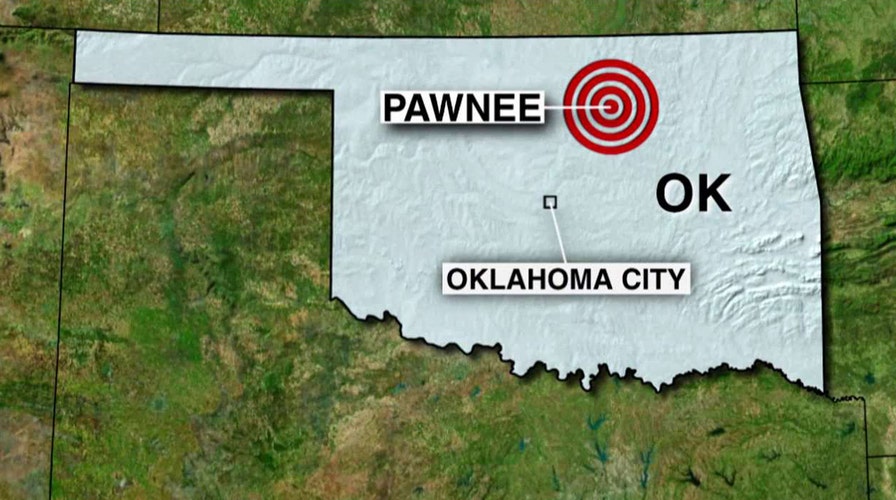OKLAHOMA CITY – Two earthquakes this year in Oklahoma greater than magnitude 5.0 — including a record-setting quake last weekend that damaged more than a dozen buildings — are expected to increase the likelihood of a more violent quake in the future, a top earthquake researcher said Wednesday.
The earthquake centered in northeast Oklahoma on Saturday was upgraded to magnitude 5.8 by the U.S. Geological Survey on Wednesday, making it the most powerful earthquake ever recorded in the state. It was the second earthquake exceeding magnitude 5.0 recorded in Oklahoma this year, which likely will increase the chances of a more powerful quake to come, said USGS geophysicist Daniel McNamara.
"You've had two 5s this year, which means a lot more energy," McNamara said during a break in a seismicity workshop in Norman that attracted some of the top earthquake researchers from across the country.
A 5.1-magnitude quake was reported in February near the town of Fairview in northwest Oklahoma.
The previous strongest recorded quake in Oklahoma was a 5.6-magnitude temblor in 2011, which also was upgraded Wednesday to a 5.7-magnitude quake.
The revisions were based on further analysis of recordings of seismic activity, the USGS said in a statement.
One man suffered a minor head injury in Saturday's quake when part of a fireplace fell on him, and emergency management officials said there have been reports of damage to more than a dozen buildings.
The uptick in earthquakes in Oklahoma over the last five years has been linked to the high-pressure injection of oil and gas wastewater deep underground, although researchers say it's too early to tell what may have caused Saturday's quake, which was located much further east than most of the previous quakes in Oklahoma.
"I'm a little surprised to see a really large earthquake really on the fringes of our earthquake area of interest," said Jeremy Boak, the director of the Oklahoma Geological Survey. "It could be a naturalearthquake. It could be some (injection) wells nearby. It could be the regional pattern of injection."
Another possibility, Boak said, is that a pulse of high water pressure deep underground has slowly moved eastward, until it hit a natural "fault that was cued up and ready and had enough seismic energy that once triggered, it really let go of the big one."
As a result of the increase in seismic activity in Oklahoma, state oil and gas regulators have ordered hundreds of disposal wells to either shut down or reduce the amount of wastewater they are injecting. About 54 wells in a 725-square-mile area near Saturday's quake were ordered shut down by state and federal regulators. In early 2015, state regulators said the amount of disposed wastewater was decreased by about 800,000 barrels a day, a roughly 25 percent decrease from 2014 levels.
Boak said the reduction in wastewater disposal appears to be producing the desired effect, dropping the number of quakes 3.0 and larger from 907 in 2015 to 472 this year through Sept. 4.
Still, both Boak and McNamara said the possibility exists that a quake as large as 6.0 could rattle Oklahoma sometime in the future.
"That's what we worry about," McNamara said. "There are definitely faults in Oklahoma big enough to produce that size of a rupture."










































